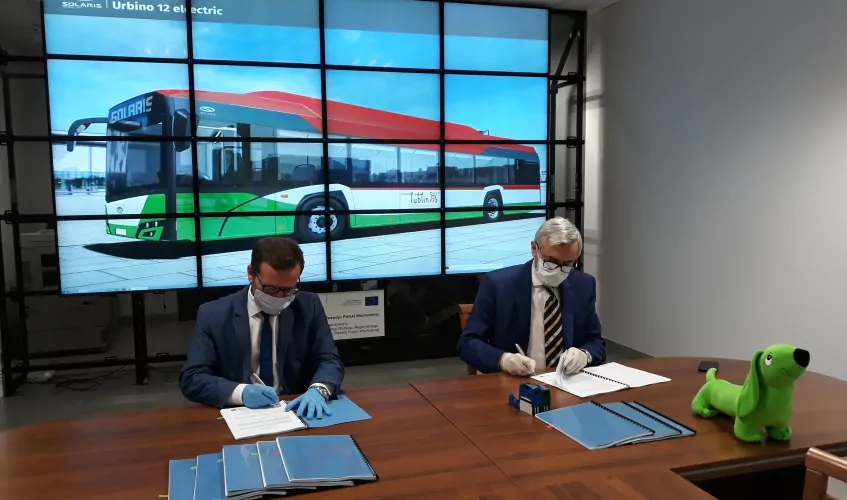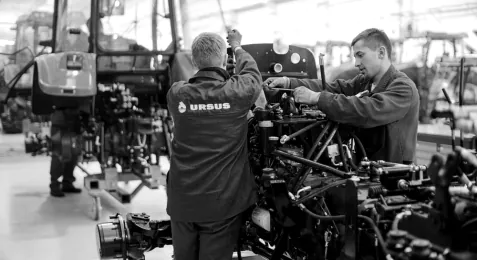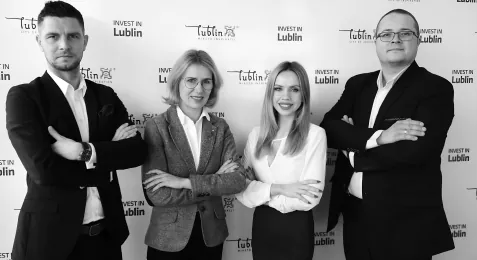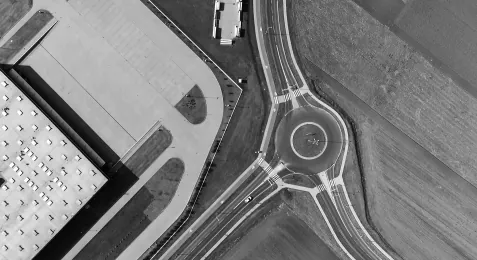Lublin Info Centre
Public transport in Lublin shifting towards zero-emission mobility

Replacing fuel combustion vehicles with electric vehicles is one of the best alternatives to reduce CO2 emissions and fight climate change. Following this idea, several legal regulations to support the development of electromobility and the use of other alternative fuels have been introduced in the transport sector. One of the most important initiatives of such type is proposed by the European Union ban on the sale of new petrol and diesel cars as of 2035, which will speed up the shift to zero-emission mobility. Among the barriers to the development of electromobility is the high price of the vehicles, therefore the polish government provides subsidies for the purchase or lease of zero-emission vehicles to both natural persons and entrepreneurs.
Public transport has undergone major changes in recent years, especially in terms of the quality of vehicles as well as their environmental impact and consequently plays a significant role in spearheading the growth of e-mobility. In a conversation with Invest-in-Lublin, Grzegorz Malec, Director of the Public Transport Authority (ZTM) in Lublin, shed a light on the projects and initiatives that are currently being implemented in public transport in the context of electrification of the bus fleet.
Investor Relations Office: Let’s start with a question about the bus fleet. What types of vehicles are currently carrying passengers around Lublin?
Grzegorz Malec: It is safe to say that trolleybuses are one of Lublin’s showcases. We are one of the three cities in Poland where this type of vehicle is available. Trolleybuses have been present in our city for almost 70 years, hence the history of electromobility in Lublin is long. Apart from trolleybuses, our streets also feature diesel and electric vehicles. Currently, we are at the stage of developing an electric bus system. On October, 20 electric vehicles began regular courses, seven more are to join them at any moment. Based on the concluded contracts, we will ultimately have 39 vehicles of this type in our fleet.
IRO: Electromobility is a slogan that undoubtedly gaining popularity in Poland. Do you think that this is also the future of public transport?
GM: I have no doubt about it. The resulting shift to electric vehicles is going to be game-changing. Public transportation plays a particularly vital role in developing and promoting environmentally friendly modes of transport. As for now, 30% of Lublin’s entire bus and trolleybus fleet is zero-emission vehicles which put the city in the honourable position of a leader in electromobility systems in Poland and even in Europe.
IRO: What projects are currently being implemented by the Public Transport Authority in the context of the development of electromobility?
GM: The development of electromobility is a multi-stage process that is carried out in Lublin’s municipal communication on many levels. It includes not only the purchase of electric vehicles but also the purchase of chargers and the expansion of the traction network. All these elements are implemented under the following projects:
• “Low-emission public transport network for the northern part of the Lublin Functional Area with the construction of an electronic ticket system for agglomeration communication “- delivery of electric buses as well charging infrastructure is the part of this project.
•”Construction and modernisation of stops and interchange nodes which are integrated with other modes of transport for the needs of the Lublin Functional Area”- electric chargers will be provided at all interchange nodes, except for the node at Osmolicka Street.
• “Expansion and clearing of the public transport network for the area of the special economic zone and the industrial zone in Lublin” – purchase of electric rolling stock, chargers and expansion of the traction network”.
• “Reconstruction of the strategic corridor of public transport along with the purchase of rolling stock in the central part of the LOF area concerning the purchase of electric buses”.
• “Integrated Communication Center for the Lublin Functional Area regarding the purchase of chargers”.
IRO: What are the real costs of using electric buses in comparison to those with combustion engines? Does ecology go hand in hand with savings?
GM: Our cost analysis clearly shows that electric buses are not only environmentally friendly but also cheaper to operate than those with an internal combustion engine. The cost of electricity is twice cheaper than the cost of diesel fuel. The difference is fundamental and undoubtedly tilts the scales of victory in favour of the electric buses.
IRO: What about other alternative propulsion sources, such as hydrogen. Is ZTM considering the purchase and operation of hydrogen buses?
GM: In the near future, we plan to announce a tender for the supply of a hydrogen bus. The vehicle will most likely enter the streets of Lublin in 2023. Fuel cells are to play the role of a “power plant”. The current drives the vehicle, and the only reaction products in the cell are heat and water vapour. Therefore, the bus is zero-emission and doesn’t generate pollution. The purchase of a hydrogen vehicle will increase the number of emission-free vehicles in Lublin and it will improve the quality of transport service for residents. Our goal is to be the first city in Poland where the eco-hydrogen-powered bus will serve passengers.
IRO: I don’t want to get ahead of myself here, but is ZTM in a long-term perspective considering the complete elimination of the diesel fleet in favour of alternative fuel sources?
GM: Our goal is to maximize the number of low-emission vehicles in the public transport system. It should be emphasized though that it is associated with large financial outlays. The key issue in this respect is the possibility of using EU funding. If there is such an opportunity in the next financial perspective, we will definitely take advantage of it.
IRO: What changes are you planning in the context of Lublin’s transport service, after the Metropolitan Railway Station is put into use? Do you envisage the implementation of any pro-ecological investments?
GM: The New Metropolitan Railway Station will be the communication centre of our region. It will connect public, suburban and long-distance transport. This investment, together with transfer nodes and stop complexes, is to make residents more willing to use ecological public transport. It will also facilitate the development of the electric bus system, as more chargers for these vehicles will be placed at the station. An important aspect of launching a new station is the creation of a new route network. With regard to it at the end of October, we started a public discussion on Lublin’s transport services regarding the opening of the Metropolitan Railway Station.
IRO: Finally, I would like to ask about the priorities and objectives that ZTM sets out for itself for the nearest future?
GM: Our priority is still sustainable and modern development of ecological public transport. Integration of transport, new, electromobility rolling stock and innovative solutions such as Park & Ride parking lots mean the possibility of smoother movement around the city for all residents and a better connection between Lublin and the Lublin region. We will definitely try to increase the share of low-emission vehicles in our fleet so that our passengers can use public transport that is perfectly adapted to their needs and is friendly to the environment.

Ecology and sustainable development are vital areas addressed in the economic and environmental context by numerous countries worldwide. In connection with the negative impact of air pollution on human life and the whole ecosystem itself, the actions and investments undertaken in order to protect the environment are more than needed. Lublin certainly responds to those postulates by following the objectives set in the „Strategy for Electromobility Development in Lublin”, one of which regards the availability of charging stations for electric vehicles. Currently, there are 20 public charging points of such type across the city. However, Lublin authorities set the goal of increasing their number twenty-fold along with the number of electric cars by 3,000 until 2022.
The pro-ecological solutions introduced by Lublin’s authorities have allowed it to join the rank compiled by the Polityka Insight and the Electric Vehicles Promotion Foundation for implementing solutions friendly to electromobility and sustainable transport. What is more, Lublin can pride itself on being the most ecological city in Poland according to the report „Europolis – cities for the European Great Deal”.
The commitment to electromobility as well as energy effectiveness will enable the capital of the Lublin region to raise the quality of life for its citizens, and, together with new investments, increase the economic attractiveness of our region.






